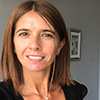Neutralities Webinar
Neutrality has been one of the most relevant theoretical and technical values in the history of psychoanalysis. Influential psychoanalysts have been its supporter and detractor. In this webinar, three colleagues will comment on how neutrality acts in emergencies, its role in transference and countertransference, and the community aspects of psychoanalytic work.
Speakers:
Hana Salaam Abdel-Malek (Lebanon)
Patricia Olguín (Chile)
Jane Hassinger (USA)
Moderator:
Jack Drescher (USA)
LinkedIn Webinar Discussion Group: click here
Podcast: Bernard Penot - The Act of the Psychoanalyst in the Service of Subjectivation -
click here
 Hana Salaam Abdel-Malek
Hana Salaam Abdel-Malek
Hana Salaam Abdel-Malek is a clinical psychologist and psychoanalyst, member of the Paris Psychoanalytic Society and the International Psychoanalytic Association. She works in private practice in Beirut, and specializes in couple, family and group psychoanalysis. She has also received training in law, negotiations and mediation. She is interested in the application of psychoanalysis to the field of international dialogue, conflict transformation, and peacemaking. In July 2009, she was runner-up for the Tyson Prize for her article ‘Depression: The Rebellion of the Real Self’, and in 2021 she was jointly awarded the Rozsika Parker Prize (Post-Qualification Path) for her article ‘Working through apocalyptic times: when the psychoanalytic frame is blown up’. She has published several articles in international psychoanalytical journals.
Title: The Impact of Shared Trauma on the Psychoanalytic Frame
In my presentation, I will analyse the impact of Lebanon’s socio-economic crisis, the Port of Beirut blast, and the COVID-19 pandemic on my work as a psychoanalyst in Lebanon. These shared traumas affected the psychoanalytic setting, frame, and process. They ‘blew up’ the constants of time, space and fees, triggering ‘topical collapse’, blurring boundaries, and reviving the ‘infantile’. They affected my internal analytic setting, compromising the fundamental rule of free association and my neutrality. I had to creatively rethink my practice and reconstruct the psychoanalytic framework.
 Patricia Olguín
Patricia Olguín
Clinical Psychologist and Psychoanalyst In-Training. She studied Psychology at Pontificia Universidad Católica de Chile and is currently a Candidate at the Chilean Psychoanalytical Association (APCh). She lives in Santiago de Chile and has worked for 20 years with adults and adolescents in private practice and private and public health organisations. She was also trained as a Psychoanalytical Psychotherapist in Short Term Psychotherapy.
Title: Neutrality as a Refuge. What are we afraid of?
Is neutrality desirable in psychoanalysis? When neutrality leads to detachment as a way of hiding from our feelings, we are not able to use our countertransference. Neutrality, if used as a refuge, may be a way to keep distance and may interfere with our analytical attitude.
 Jane Hassinger
Jane Hassinger
Psychoanalyst in Ann Arbor, Michigan and retired faculty member in Women’s and Gender Studies at the University of Michigan. Member of the Michigan Psychoanalytic Society and on the faculty of the Psychoanalytic Institute of Northern California’s Group Process program. Jane’s interdisciplinary projects have addressed significant global challenges such as abortion, gender-based violence, and mental health and include: Global Providers Share Program (with Lisa Harris, MD, 2007-2021); Community responses for survivors of gender-based violence in the DRC (with Denis Mukwege,MD; 2010-2013) and Women on Purpose: Ending Silence around HIV/AIDS in South Africa (2005-2012, with Kim Berman, MFA, PhD). Her publications include “The Community Turn: Relational Citizenship in the Psychoanalytic Community” (IJP, 2022, with Billie Pivnick) and “Twentieth Century Living Color: Racialized Enactments in Psychoanalysis” (PCS, 2014). Her book, Women On Purpose: Resilience and Creativity of the Women of Phumani Paper (with Kim Berman) was published in 2012. In 2014, she and Billie Pivnick, PhD, founded The Psychoanalytic Community Collaboratory.
Title: No such thing as ‘neutral’: Getting in gear for Psychoanalytic Community-based Practice.
In this brief commentary, I will discuss various challenges for psychoanalysts as they move from the clinical setting to collaborating with others on community-based projects. In this transition, one is confronted with echoes of colonial, authoritarian features of core principles, such as ‘neutrality’. These principles have constrained our thinking about psychic development, shaped our psychoanalytic identities, and organized our practices to reflect hierarchically constructed relations of expertise-based power and control.
 Jack Drescher
Jack Drescher
Psychiatrist and psychoanalyst in private practice in New York City. Dr Drescher is a Clinical Professor of Psychiatry at Columbia University, Vagelos College of Physicians and Surgeons and a Faculty Member at Columbia’s Division of Gender, Sexuality, and Health. He is a Senior Psychoanalytic Consultant at Columbia’s Center for Psychoanalytic Training and Research and Adjunct Professor at New York University’s Postdoctoral Program in Psychotherapy and Psychoanalysis. He is a Training and Supervising Analyst at the William Alanson White Institute.